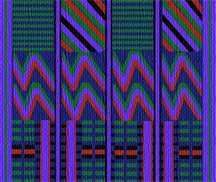Gender & Development
Association for Women in Development (AWID)
- The Association for Women's Rights in Development (AWID) is an international, multi-generational, feminist, creative, future-orientated membership organization committed to achieving gender equality, sustainable development and women's human rights. A dynamic network of women and men around the world, AWID members are researchers, academics, students, educators, activists, business people, policy-makers, development practitioners, funders, and mores.
Development Alternatives for Women for a New Era (DAWN)
DAWN [seeks] to influence global debates on development by offering holistic analyses from a South feminist perspective that is both grounded in women's experience and inspired by women's collective strategies and visions. The DAWN network today covers Africa, Asia, Latin America, the Caribbean and the Pacific. DAWN work at the regional level connects with the priorities of women's and civil society organisations in each region, and helps strengthen capacity to deal with issues arising from the impacts of globalisation.
Gender Action
- Gender Action's mission is to promote women's rights and gender equality and ensure women and men equally participate in and benefit from Financial Institution (FI) investments in developing countries.
Gender and Development
- Since 1993, Gender & Development has aimed to promote, inspire, and support development policy and practice, which furthers the goal of equality between women and men. This journal has a readership in over 90 countries and uses clear accessible language. Each issue of Gender & Development focuses on a topic of key interest to all involved in promoting gender equality through development. An up-to-the minute overview of the topic is followed by a range of articles from researchers, policy makers, and practitioners. Insights from development initiatives across the world are shared and analysed, and lessons identified. Innovative theoretical concepts are explored by key academic writers, and the uses of these concepts for policy and practice are explored. Each issue includes an up-to-date resources section, listing publications, electronic resources, and organisations. Wellesley College Access
The Girl Effect
OECD Gender, Institutions and Development Database
- The OECD Gender, Institutions and Development Database (GID-DB) represents a new tool for researchers and policy makers to determine and analyse obstacles to women’s economic development. It covers a total of 160 countries and comprises an array of 60 indicators on gender discrimination.
Nicholas Kristof's Blog: Women and Development
Siyanda
- Siyanda is an on-line database of gender and development materials from around the world. It is also an interactive space where gender practitioners can share ideas, experiences and resources.
UN Women
- UN Women is the UN organization dedicated to gender equality and the empowerment of women. A global champion for women and girls, UN Women was established to accelerate progress on meeting their needs worldwide. (Formerly UNIFEM)
UNDP Gender-related Development Index (GDI)
- The Gender Related Development Index (GDI) is a composite index that measures human development in the same dimensions as the HDI while adjusting for gender inequality in those basic dimensions. Its coverage is limited to 136 countries and areas for which the HDI rank was recalculated.
UNDP Gender Empowerment Measure (GEM)
- The Gender Empowerment Measure (GEM) is a composite indicator that captures gender inequality in three key areas: the extent of women's political participation and decision-making, economic participation and decision making-power and the power exerted by women over economic resources.
UNDP: Women's Empowerment
- UNDP focuses on gender equality and women’s empowerment not only as human rights, but also because they are a pathway to achieving the Millennium Development Goals and sustainable development.
USAID Office of Gender Equality & Women's Empowerment
- The Office of Gender Equality & Women's Empowerment (GenDev) leads USAID efforts to empower women and achieve gender equality through international development policies and programs.
Wikigender
- Wikigender is a project initiated by the OECD Development Centre to facilitate the exchange and improve the knowledge on gender-related issues around the world. A particular focus lies on gathering empirical evidence and identifying adequate statistics to measure gender equality.
Women's Environment and Development Organization (WEDO)
- WEDO was established in 1990 by former U.S. Congresswoman Bella Abzug (1920-1998) and feminist activist and journalist Mim Kelber (1922-2004). Since its inception, WEDO has been a leader in organizing women for international conferences and actions. Today, WEDO recognizes that policy commitments alone are not enough to improve women’s daily lives. That is why WEDO is collaborating more deeply with Southern partners on implementing global policy gains at the national level and holding governments accountable to their commitments on women’s rights.
World Bank: Gender and Development
- World Bank attention to gender equality issues began in the 1970s, but the Bank’s emphasis increased markedly since the 1995 Fourth World Conference on Women in Beijing. Gender equality is now a core element of the Bank’s strategy to reduce poverty and a Gender Mainstreaming Strategy Paper was adopted in 2001.
Back to top |
